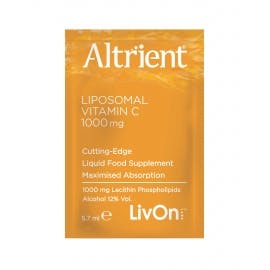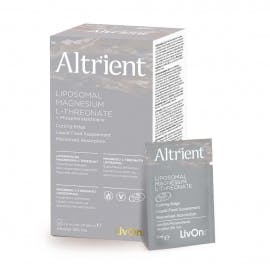Nutrition advice for arthritis support over the cold, damp winter months
According to Arthritis Research UK, 10 million people suffer from arthritis, a painful condition which can flare-up during the colder months of the year. There are various forms of arthritis and rheumatoid arthritis but what they all have in common is inflammation within the joints. Finding ways to control your level of inflammation and protect cartilage are keys factor in symptom management and preserving your mobility.
Grounded by the weather
Most of us love to get out and about in the summer sunshine but as soon as the colder months draw in, we swap our trainers or walking shoes for wellie boots or slippers and become less keen to brave the chilling great outdoors! Consequently, the autumn and winter months can be much more sedentary and this can cause the muscles, tendons, ligaments and joints to become stiff and painful. Signing up to an indoor activity such as yoga, Pilates, dancing, swimming or a fitness class suited to your age and ability is a fantastic way to keep your body flexible and prevent your muscles and joints from seizing up. If you are experiencing tight muscles then it’s the mineral magnesium that helps soften and relax muscle fibres.
Liposomal magnesium - the true joint hero
This mineral has many roles to perform in the body and aside from its helpful role in soothing tired and tight muscles it also helps support joint health. Cartilage, which acts as a cushion in-between joint spaces, is made up of a gel-like substance called hyaluronic acid which acts like a sponge, soaking up water and plumping up the cartilage cushion. Stress, toxicity and getting older cause hyaluronic acid levels to decline resulting in a thinning of the cartridge triggering joint pain and mobility issues. We often hear how beneficial calcium is for strong bones but it’s magnesium that is the real hero for joints and cartilage. Magnesium helps to activate an enzyme, called hyaluronan synthase, found within the cartilage which increases the biosynthesis of hyaluronic acid. Stress depletes the body of magnesium so you might find that your joint pains are worse during times of prolonged stress. Taking a supplement containing magnesium such as liposomal Altrient B is highly recommended for supporting joint health and mobility. Foods rich in magnesium include green leafy vegetables, nuts and seeds so don’t forget to add these to your shopping list!
Liposomal vitamin C – joint repair kit
When it comes to osteoarthritis it’s liposomal vitamin C that heads up the repair team. This powerful antioxidant is known to be chondroprotective, meaning it protects specialised cells called chondrocytes found within cartilage. Vitamin C also supports chondrocyte activity helping them function efficiently. Chondrocytes produce collagen and proteoglycans which keep the cartilage fluid, gel-like and able to perform as shock absorbers protecting the joints from wear and tear. Liposomal Altrient vitamin C has proved itself to be an essential supplement for boosting collagen levels with the skin cells which makes this vitamin C supplement an obvious choice for supporting collagen production within cartilage and providing valuable antioxidant protection for joint health.
Food medicine – nightshade, omega’s and fibre
Nasty nightshades…
The nightshade family, which includes tomatoes, white potatoes, bell peppers and aubergine, may need to be avoided in some individuals suffering from arthritis. These vegetables contain a toxin called solanine which can interfere with muscle function causing pain and discomfort.
Fibre facts
A study from the University of Illinois suggests that soluble fibre reduces inflammation, by increasing the production of the anti-inflammatory protein interleukin-4. Good sources of soluble fibre include fruits, vegetables, nuts, seeds, rolled oats, oat bran, oatmeal, barley, pulses (beans, peas and lentils), and flax seeds. As well as being a good source of fibre these foods are also an excellent source of antioxidants. Make sure you hit your 5-a-day target or reach for 8-a-day when possible. Red and purple berries and other fruits such as black grapes, bilberries, blackcurrants and blueberries are especially rich a group of antioxidants called anthocyanidins and proanthocyanidins which have very powerful anti-inflammatory properties.
Helpful omega-3
Studies have shown that increasing omega-3 fats found in oily fish such as salmon, mackerel, tuna, trout and sardines along with walnuts, flax and hemp seeds is also highly beneficial for managing pain and inflammation. Cutting back on foods rich pro-inflammatory saturated fats such as butter, cheese, ice-cream, cream, red meat and trans-fats found in commercially baked goods, processed foods and some margarines is also a good food tip for arthritis sufferers.
Susie Debice BSc Hons, Dip ION
References
Garima Sharma, D.S. Rathore. Review Article - Potential Role of Nutraceuticals in the Management of Knee and Hip Joint Osteoarthritis Biomedical Science and Engineering - Vol. 3, No. 1, 2015, pp 23-29. doi: 10.12691/bse-3-1-5
Moscatelli D, Rubin H.J. Hormonal control of hyaluronic acid production in fibroblasts and its relation to nucleic acid and protein synthesis. Cell Physiol. 1977 Apr;91(1):79-88.
Huang TL1,2, Yang CH3, Yanai G4, Liao JY1,2, Sumi S4, Yang KC4,5. Synergistic effect of l-ascorbic acid and hyaluronic acid on the expressions of matrix metalloproteinase-3 and -9 in human chondrocytes. J Biomed Mater Res B Appl Biomater. 2018 Jul;106(5):1809-1817. doi: 10.1002/jbm.b.33988. Epub 2017 Sep 15.
Christina L. Sherry, Stephanie S. Kim, Ryan N. Dilger, Laura L. Bauer, Morgan L. Moon, Richard I. Tapping, George C. Fahey Jr., Kelly A. Tappenden, Gregory G. Freund. Sickness behavior induced by endotoxin can be mitigated by the dietary soluble fiber, pectin, through up-regulation of IL-4 and Th2 polarization. Brain Behavior and Immunity, 2010; DOI: 10.1016/j.bbi.2010.01.015
Kunisuke Izawa, Motonaka Kuroda. Solanine – Chemical Ecology and Toxicology. Comprehensive Natural Products II, 2010 https://www.sciencedirect.com/topics/pharmacology-toxicology-and-pharmaceutical-science/solanine
Philippou E1, Nikiphorou E2. Are we really what we eat? Nutrition and its role in the onset of rheumatoid arthritis. Autoimmun Rev. 2018 Nov;17(11):1074-1077. doi: 10.1016/j.autrev.2018.05.009. Epub 2018 Sep 10.
Van de Vyver A1, Clockaerts S2,3, van de Lest CHA4, Wei W2, Verhaar J2, Van Osch GJVM2,5, Bastiaansen-Jenniskens YM2. Synovial Fluid Fatty Acid Profiles Differ between Osteoarthritis and Healthy Patients. Cartilage. 2018 Sep 11:1947603518798891. doi: 10.1177/1947603518798891. [Epub ahead of print]





